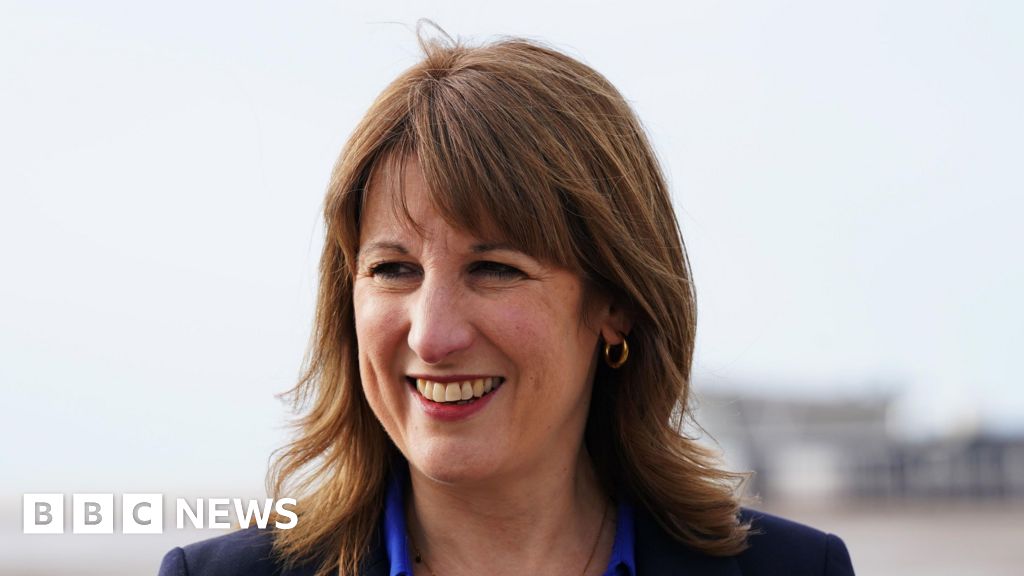The chancellor has given the clearest indication yet that she wants to give herself more financial breathing space in November’s Budget.
Speaking at a gathering of business leaders in Saudi Arabia, Rachel Reeves said she wanted to ensure the UK had “sufficient headroom” to provide resilience against future shocks.
The implication is that the £9.9bn buffer she allowed herself in last year’s budget is not sufficient to provide resilience against changing circumstances.
Increasing that headroom will require additional tax rises and or spending cuts, which she confirmed she is considering.
Reeves did not rule out the possibility of tax rises when asked if she was considering them ahead of the Budget, adding that economic growth would be “a big part of the Budget story”.
“But we are looking, of course, at tax and spending to ensure that we both have resilience against future shocks by ensuring we’ve got sufficient headroom, and also just ensuring that those fiscal rules are adhered to,” she said in an address at Fortune Magazine’s global forum in Riyadh.
The big question is whether the importance she places on increasing that buffer is enough to make her break manifesto pledges not to increase rates of income tax, VAT or employees’ national insurance.
Previous insistence that those promises would stand appear to have been weakened recently to a commitment to keep taxes on working people “as low as possible”.
Earlier this month, the Institute for Fiscal Studies think tank estimated the chancellor would need to find £22bn to make up the government finance shortfall.
Rachel Reeves is to meet ministers from Saudi Arabia and Qatar on Monday and Tuesday – the first UK chancellor to visit the Gulf in six years.
A series of two-way trade and investment deals are expected to be announced during her visit to the Future Investment Initiative (FII) in Riyadh, dubbed the “Davos in the Desert”.
The government is keen to promote the UK as a stable and attractive place to do business for the countries that make up the Gulf Co-operation Council (GCC).
Back in the UK, there are warnings the government’s flagship Employment Rights Bill, giving workers new rights and protections on sick pay and unfair dismissal from their first day on the job, will deter job creation.
After meeting senior Saudi royals on Monday she will join dozens of UK and international CEOs on Tuesday during the FII event.
Following a trade deal with India, a tariff deal with the US and a closer reset with the EU, the chancellor is keen to press ahead with a trade deal with the GCC, which includes Kuwait, the UAE, Qatar and Saudi Arabia.
Reeves said: “Our number one priority is growth, so I am taking Britain’s offer of stability, regulatory agility and world-class expertise directly to one of the world’s most important trade and investment hubs, making that case in our national interest.”
However, even by the government’s own estimates, such a deal would add only £1.6bn a year to UK GDP, which is less than a tenth of 1%.
While the chancellor bangs the drum for Britain abroad, at home the workers’ rights bill, which will be considered by the House of Lords on Tuesday, is facing criticism from unexpected quarters.
The Resolution Foundation, which has enjoyed the ear of the Labour Party for many years, has joined a chorus of business voices warning that conferring additional rights and protections around unfair dismissal and sick pay to employees from day one on the job would “inhibit hiring” at a time of rising workplace vacancies.
On Friday, 13 business groups, including the CBI, Make UK and the Federation of Small Business, wrote a letter urging support in the House of Lords for an amendment that would bring in the new rights after six months.
While the government has been praised in business circles for concluding trade deals, some say it has done a better job convincing foreign investors than reassuring UK businesses, many of which have been hit with a £25bn tax rise in the last budget and are fearful of potential further tax rises in her next one.
